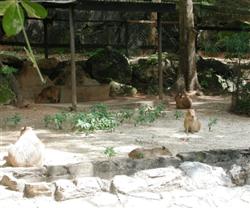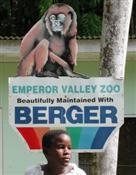
The Open School of Tropical Animal
Science and Production
2/21/2026 6:42:20 PM




THE SUGGESTED APPROACH OF THE OSTAS&P
This new approach should have the following elements:
(i) an increased dialogue between in situ and ex situ wildlife conservation efforts (the bringing together of the different human elements);

Picture of ex situ conservation of capybara
in the Emperor Valley Zoo
(ii) the intensive Production of Species with the potential for domestication;
(iii) the utilization of biotechnology for the conservation of useful genes from within the existing wildlife gene-pool;

Diagram of the Apparatus for Gel Electrophoresis and Results
(iv) the expanded Research into the anatomy (digestive and reproductive), health and husbandry of wildlife species;



The above pictures portray researchers and some of their specimens
(v) the development of an International Network on Wildlife {Non-domestic animal research and development, which would include Zoos, Conservation Parks, Universities, Research Institutions and Private collections; and


Pictures of research institutions
(vi) the use of the CGIAR International Plant Genetic Resources Institute (IPGRI) Network Model could be used as the basis for setting up the TASIN as suggested.